Filter by
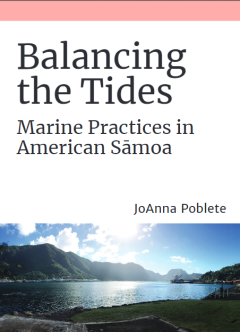
Balancing the tides : marine practices in American Sāmoa
"Balancing the Tides highlights the influence of marine practices and policies in the unincorporated territory of American Samoa on the local indigenous group, the American fishing industry, international seafood consumption, U.S. environmental programs, as well as global ecological and native concerns. Poblete explains how U.S. federal fishing programs in the post–World War II period encoura…
- Edition
- -
- ISBN/ISSN
- 9780824879686
- Collation
- 256p. ; ill.
- Series Title
- -
- Call Number
- 338.3727099613 JOA b
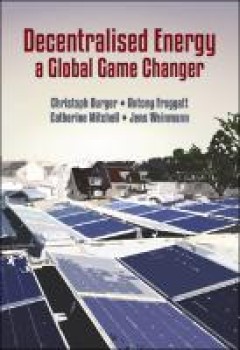
Decentralised energy : a global game changer
As the contribution of renewable energy increases to meet climate change objectives, so does the extent to which electricity is generated by individuals and communities, moving a centralised system to a more decentralised one, with associated system management and integration challenges. However, new digital and storage technologies are enabling local system management, and reducing the need fo…
- Edition
- -
- ISBN/ISSN
- 9781911529699
- Collation
- xvii. ;ill. : 313 p.
- Series Title
- -
- Call Number
- 130. CHR d

Multilateral banks and the development process : vital links in the results c…
A chain is only as strong as its weakest link. When the links in the chain represent development projects, if individual projects fail to achieve their purpose, the development program's effectiveness is compromised. When the chain's links are strong and well-connected, the results are improved for the sector, country, and region. The role of multilateral banks is crucial; they inform the impac…
- Edition
- -
- ISBN/ISSN
- 9781412847674
- Collation
- xxi, 153 p. : bnw, ill.
- Series Title
- -
- Call Number
- 332.153091724 THO m
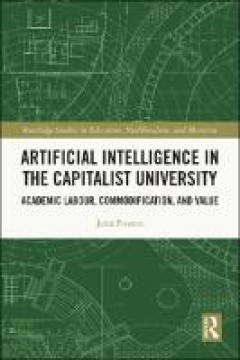
Artificial intelligence in the Capitalist University : academic labour, commo…
Using Marxist critique, this book explores manifestations of Artificial Intelligence (AI) in Higher Education and demonstrates how it contributes to the functioning and existence of the capitalist university. Challenging the idea that AI is a break from previous capitalist technologies, the book offers nuanced examination of the impacts of AI on the control and regulation of academic work and l…
- Edition
- -
- ISBN/ISSN
- 9781003081654
- Collation
- VII, 173 p.
- Series Title
- Routledge Studies in Education, Neoliberalism, and Marxism,
- Call Number
- 378.17344678 PRE a
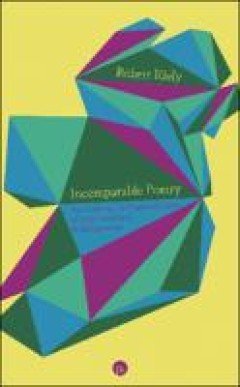
Incomparable Poetry : An Essay on the Financial Crisis of 2007–2008 and Iri…
Incomparable Poetry: An Essay on the Financial Crisis of 2007-2008 and Irish Literature is an attempt to describe the ways in which the financial crisis of 2007-8 impacted literature in Ireland, and thereby describe the ways in which poetry engages with, is structured by, and wrestles with economic issues.Ireland and its contemporary poetry is a particularly suitable case study for studying the…
- Edition
- -
- ISBN/ISSN
- 9781950192847
- Collation
- 163p. ; ill.
- Series Title
- -
- Call Number
- 822.052309 KIE i
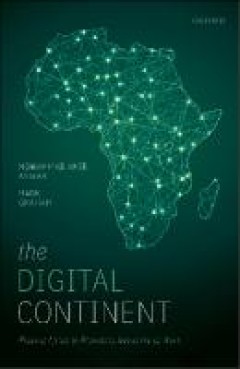
The digital continent : placing Africa in the world of digital work
Only ten years ago, there were more internet users in countries like France or Germany than in all of Africa put together. But much has changed in a decade. The year 2018 marks the first year in human history in which a majority of the world’s population are now connected to the internet. This mass connectivity means that we have an internet that no longer connects only the world’s wealthy.…
- Edition
- -
- ISBN/ISSN
- 9780198840800
- Collation
- 288p. ; ill.
- Series Title
- -
- Call Number
- 331.096 MOH t
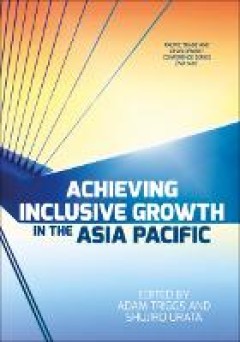
Achieving Inclusive Growth in the Asia Pacific
The world’s developed economies are experiencing a sharp backlash against globalisation, and it appears to be contagious. Will Asia catch it next? Asia has seen spectacular growth in recent decades. It has benefited substantially from global trade, finance, openness and the rules-based international order. But much of the growth Asia has enjoyed has not been shared. It has not been inclusive …
- Edition
- -
- ISBN/ISSN
- 9781760463816
- Collation
- 287p. ; ill.
- Series Title
- -
- Call Number
- 337.15 ADA a
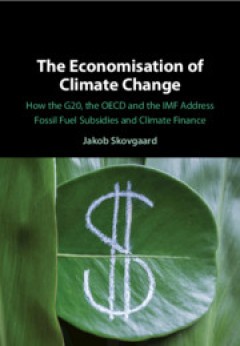
The economisation of climate change : how the G20, the OECD and the IMF addre…
The effort to address climate change cuts across a wide range of non-environmental actors and policy areas, including international economic institutions such as the Group of Twenty (G20), International Monetary Fund (IMF), and the Organisation for Economic Co-operation and Development (OECD). These institutions do not tend to address climate change so much as an environmental issue, but as an …
- Edition
- -
- ISBN/ISSN
- 9781108688048
- Collation
- xvii, 298 p. ; ill
- Series Title
- -
- Call Number
- 333.72 SKO t
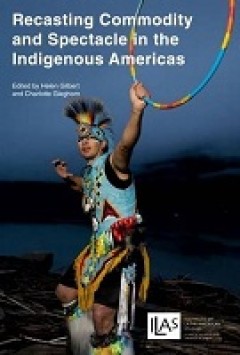
Recasting commodity and spectacle in the indigenous Americas
Indigenous artists frequently voice concerns over the commodification of their cultures, a process acutely felt by those living with the consequences of colonialism. This timely book, which features colour illustrations throughout, examines the ways in which contemporary indigenous peoples in different parts of the Americas have harnessed performance practices to resist imposed stereotypes and …
- Edition
- -
- ISBN/ISSN
- 9781908857088
- Collation
- ix, 273p.
- Series Title
- -
- Call Number
- 700.98 REC g
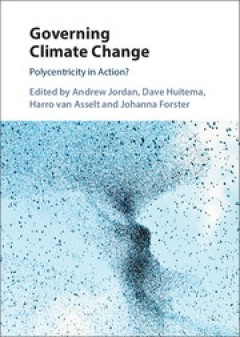
Governing climate change : polycentricity in action?
Climate change governance is in a state of enormous flux. New and more dynamic forms of governing are appearing around the international climate regime centred on the United Nations Framework Convention on Climate Change (UNFCCC). They appear to be emerging spontaneously from the bottom up, producing a more dispersed pattern of governing, which Nobel Laureate Elinor Ostrom famously described as…
- Edition
- -
- ISBN/ISSN
- 9781108284646
- Collation
- xv, 408 p. ; ill
- Series Title
- -
- Call Number
- 363.7387453 HUI g
 Computer Science, Information & General Works
Computer Science, Information & General Works  Philosophy & Psychology
Philosophy & Psychology  Religion
Religion  Social Sciences
Social Sciences  Language
Language  Pure Science
Pure Science  Applied Sciences
Applied Sciences  Art & Recreation
Art & Recreation  Literature
Literature  History & Geography
History & Geography